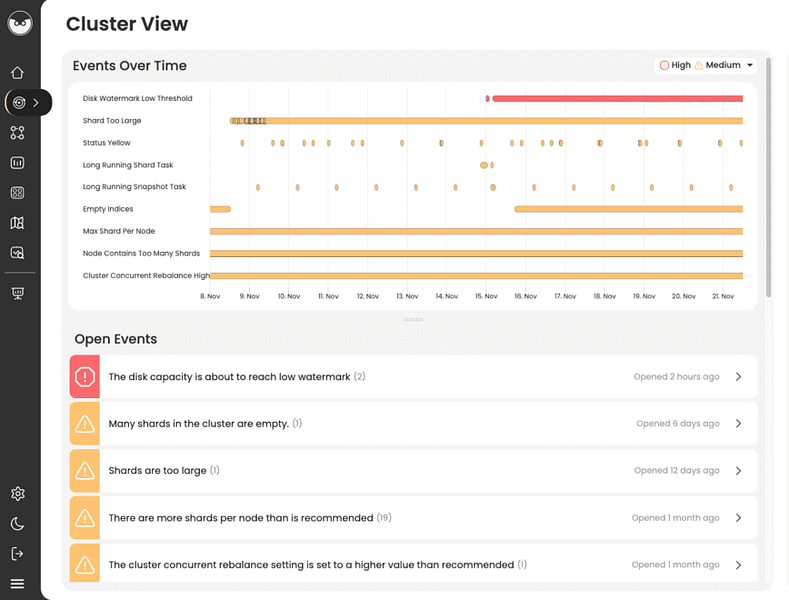Opster Team
Last updated: Oct 30, 2022
| 1 min readIn addition to reading this guide, we recommend you run the Elasticsearch Health Check-Up. It will detect issues and improve your Elasticsearch performance by analyzing your shard sizes, threadpools, memory, snapshots, disk watermarks and more.The Elasticsearch Check-Up is free and requires no installation.
To manage all aspects of your OpenSearch operation, you can use Opster’s Management Console (OMC). The OMC makes it easy to orchestrate and manage OpenSearch in any environment. Using the OMC you can deploy multiple clusters, configure node roles, scale cluster resources, manage certificates and more – all from a single interface, for free. Check it out here.
Overview
In OpenSearch, when using the Bulk API it is possible to perform many write operations in a single API call, which increases the indexing speed. Using the Bulk API is more efficient than sending multiple separate requests. This can be done for the following four actions:
- Index
- Update
- Create
- Delete
Examples
The bulk request below will index a document, delete another document, and update an existing document.
POST _bulk
{ "index" : { "_index" : "myindex", "_id" : "1" } }
{ "field1" : "value" }
{ "delete" : { "_index" : "myindex", "_id" : "2" } }
{ "update" : {"_id" : "1", "_index" : "myindex"} }
{ "doc" : {"field2" : "value5"} }Notes
- The OpenSearch bulk API is useful when you need to index data streams that can be queued up and indexed in batches of hundreds or thousands, such as logs.
- There is no correct number of actions or limits to perform on a single bulk call, but you will need to figure out the optimum number by experimentation, given the cluster size, number of nodes, hardware specs etc.
Find & fix Elasticsearch problems
Opster AutoOps diagnoses & fixes issues in Elasticsearch based on analyzing hundreds of metrics.
Fix Your Cluster IssuesConnect in under 2 minutes

Matt Watson
CTO at Stackify





